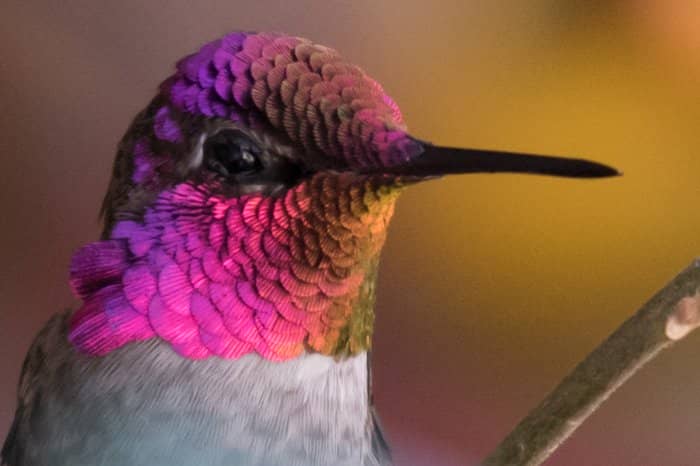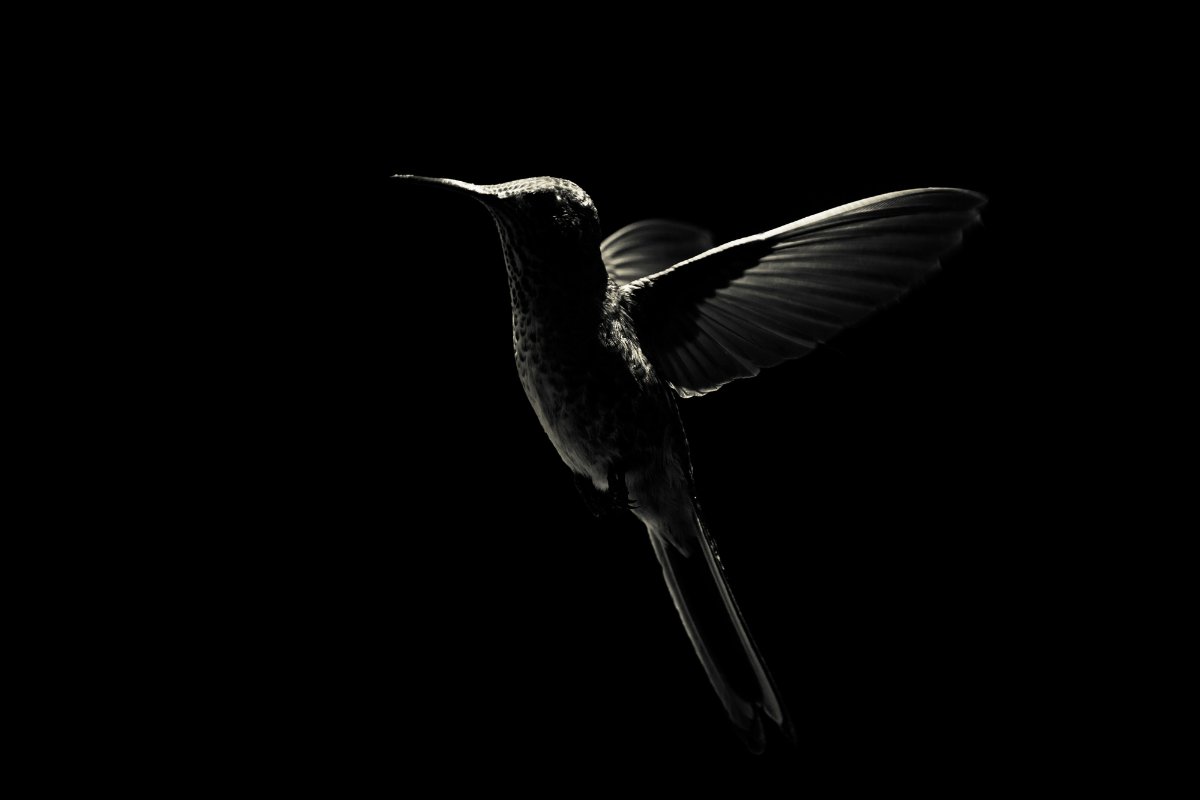Are there black hummingbirds? Take a look at this article and find out if these birds only come as colorful or if there are some dark specimens as well.
One thing is for sure, these adorable, jewel-like birds are truly easy to fall in love with. One face-to-face encounter is enough to absolutely change the minds of even those people who don’t consider themselves bird enthusiasts. They are easy to spot and distinguish from all other bird species, primarily because of their array of colors that sparkle in the sunlight like jewels, hence the name.
We know that there is a hummer for nearly every color of the rainbow, however, are there black hummingbirds? Keep reading this article to find out.
A Few Sentences About The Specificity Of Their Colors
Before we offer you the answer to the question “are there black hummingbirds”, we think it is necessary to devote a few sentences to their most common and unique plumage color. To be honest, hummingbirds are in a class of their own in every possible way. They have an incredibly fast metabolism, can perform the most demanding acrobatics in the air, and their average heart rate is 250 beats per minute.
The same applies to colors. If you decide to flip through some books or simply do some research on the Internet, you will easily see that what we said a moment ago is true; i. e. there is a hummingbird for nearly every color of the rainbow.
Not so long ago, Yale University conducted extensive research that proved that the heroes of this article have a plumage diversity that exceeds the known colors of all other bird species combined. How amazing right?!

Furthermore, it is interesting to note that this research has greatly changed our perception when it comes to the plumage colors of these birds, as the results revealed an increase in the total known plumage colors visible to birds by 56 %.
As we have already stated, you can see them in all the colors of the rainbow, but there are also examples that go far beyond that. Therefore, don’t think that your eyes are deceiving you if you spot a hummingbird in one of the following, slightly unusual shades:
- copper red
- emerald green
- gray
- metallic bronze
- metallic green
- reddish brown
- rose red
- white
Are There Black Hummingbirds?
If you are lucky enough to live in Washington, Oregon, Idaho, Nevada, Utah, Colorado, California, Arizona, New Mexico, or Texas, we have to admit we are a little bit jealous of you. Namely, the chances are high that you have the opportunity to see these beautiful creatures on a regular basis, and the luckiest of you may be attracting them to your feeder in the garden every day.
You have probably been able to admire firsthand the array of colors that flash in the sunlight as it buzzes around the feeder. But, are there black hummingbirds? The answer is yes! We didn’t list those 10 countries earlier without reason. They are among the few who have the opportunity to enjoy watching black hummingbirds every day.
To be honest, probably none of you have had the chance to see an all-black hummingbird, because they are really extremely rare. However, it isn’t difficult to run into a black-headed hummingbird or a black-throated hummingbird.
National Geographic Backyard Guide to the Birds of North America
Bird Of The Day: Black Chin Hummingbird
Now that you know the answer to the question: “are there black hummingbirds”, we would like to introduce you to our favorite, shall we? Let’s go into detail. A Black chin hummingbird is common and also the most widespread western summer visitor to our gardens.
These are birds that adapt extremely easily to different habitats, which is why we can find them in arid as well as in coastal areas. However, just like humans and all other animals, this species of hummingbird has its preferences and accordingly, if possible, will always choose shaded areas, mountain foothills, and canyons, but it will not run away from urban and suburban gardens and parks.
Physical Appearance & Identification
To be honest, in low light conditions, all hummingbirds may look black. This is exactly why you might think that you see an all-black hummingbird, but things can change as soon as the bird takes off and its feathers are illuminated by the sun’s rays.
Males of this species generally have a dark-colored head, back, and flanks (dark green, dark blue, or dark grey), a black chin and throat, as well as a grey-white chest with a green patch on the flanks. Females on the other hand have similar characteristics except for the white throats that may show faint green streaking. It is important to emphasize that these are unique birds, which doesn’t necessarily mean that every male and female will look identical.
Did you know that most of these jewel-like birds are good singers? However, these black hummingbirds do not fall into that category, they do sing but instead emit repetitive, low-beating, vocal notes.
Behavior
They are one of the most aggressive members of the Trochilidae bird family. When they are at their angriest and ready to fight, their wings make a distinctive, buzzing metallic hum that cannot be found in any of their relatives.
They nest and perch on the highest branches in order to have the environment under control, and if feel threatened they will certainly chase intruders well outside their boundaries.
To Conclude: Are There Black Hummingbirds?
You will be quite hard-pressed to find a completely black hummingbird, but there are individuals that have a predominant black shade. Even if it seems to you that you have really seen a black individual, remember that in low-light conditions, all hummingbirds may look black.
We wish you the best of luck and hope that soon you will have the opportunity to spot some of the most unique colored individuals at the feeder in your garden. Have questions? Tell us more in the comment section below!
Recommended: Facts About Hummingbirds Habitat: 4 Important Questions That Had To Be Answered!


